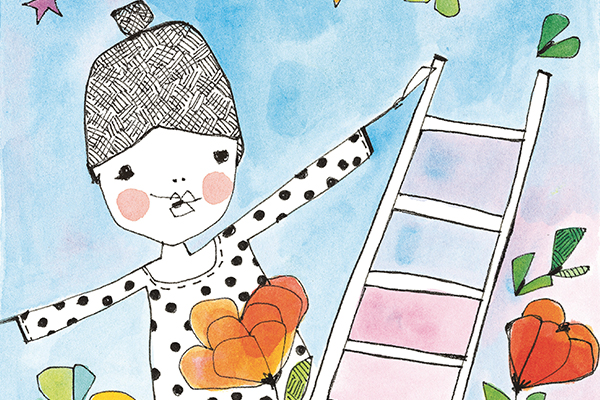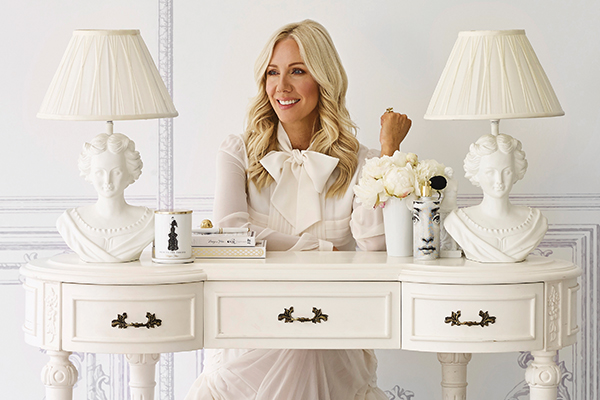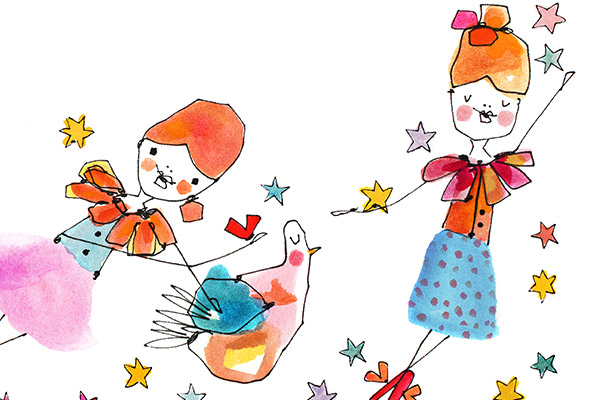Teach Your Partner How To Treat You
14 Feb 2020 | Chidera Eggerue
How To Get Over A Boy by Chidera Eggerue is the girl power, body positivity, self-love inspirational book of your dreams. Activist and best-selling author Chidera deals out truths and advice that will help you get over that boy who didn’t deserve you, or flourish in your current relationship. Read her thoughts on the importance of teaching other people to treat you the way you deserve with an overlook on attachment theory and how to figure out your love language.
Teach People How To Treat You
Attachment theory is a very exciting thing to explore when getting over a boy, because it will give you an intricate understanding of why you act the way you act in situations that involve other people, and how to establish boundaries as a result of that.
Attachment theory is a psychological model that describes the dynamics of interpersonal relationships. It is very important to understand how attachment works, because it is the framework for how we build relationships with others and the lens through which we gaze at (and often judge) them. Teaching people how to treat you is incredibly vital, but where do you even begin if you don’t have the tools or the language to identify the root of your desires, demands and disappointments? Time spent learning yourself is never time wasted – and the sooner you start, the sooner you will begin to see the results of your own self-work.
There are four main attachment styles: anxious-preoccupied, dismissive-avoidant, fearful-avoidant and secure. It’s super important to identify which attachment style you have, because this information will allow you to develop the tools to work around yourself while you heal after a breakup. It is absolutely possible to heal yourself while being in a relationship with someone else, but it does require a lot more analysis of your love language (see p76) and how you respond to the love you seek.
Another great thing about knowing your attachment style is that it will enable you to assess your compatibility with someone from a more honest, introspective perspective. Whilst this might sound a bit daunting, it’s actually pretty empowering when you think about it, because essentially what you are doing is navigating partnerships with the awareness that you are not perfect and the knowledge that certain things will trigger you. Preparing yourself for those triggers and being able to deal with them – should you welcome them into your life – will set you up for situations you actually choose, rather than settle for.
As well as different attachment styles, there are different love languages – five in total. My main two love languages are receiving gifts and acts of service (I absolutely love being spoiled), followed by words of affirmation (tell me why you are so in love with me, and what it is about me that makes me unforgettable to you) and quality time. Physical touch comes last for me, but it’s still important.
It’s vital that you figure out what your love language is, because this will allow your partner to love you in a way that actually allows you to feel it. A lot of the time, we try to love other people in our own way, but in practice this isn’t realistic because people aren’t necessarily receptive or responsive to the same things as us. And this isn’t a constraint at all – in fact, it’s exciting!
If you’re wondering where to start with figuring out your love language, there are so many quick and easy online tests you can take just by searching ‘love language test’ in your preferred search engine, or you can turn the page for a quick fire version.
You could even get your partner to take the test too, and compare results to see how you can change or improve the ways you love each other and express that love. Even if your results clash, this isn’t a bad thing, because this will actually provide you with clarity on why something hasn’t really been clicking all this time. Hopefully this new information will allow
you both to reflect on your relationship and improve things – or even, if necessary, find new partners who are better suited for your needs, because if you find yourself changing or silencing your love language for someone, you will be unhappy and end up feeling like you’re settling.
Love languages and attachment theory go hand in hand quite well. But it’s important not to conflate attachment styles and love languages. Although the two are often linked there is no one equivalent love language for each style of attachment. Your attachment style is strongly linked to how you were nurtured as a child, whilst your love language is simply the way(s) you feel most loved. As attachment style can be more complex, I would recommend reading the profiles that start on p78 and seeing which speaks the most to you, and then finding a detailed quiz online.
Work out your love language
All text is extracted from How To Get Over A Boy by Chidera Eggerue
Available now in all good bookstores and online
Click here to find your preferred online retailer





